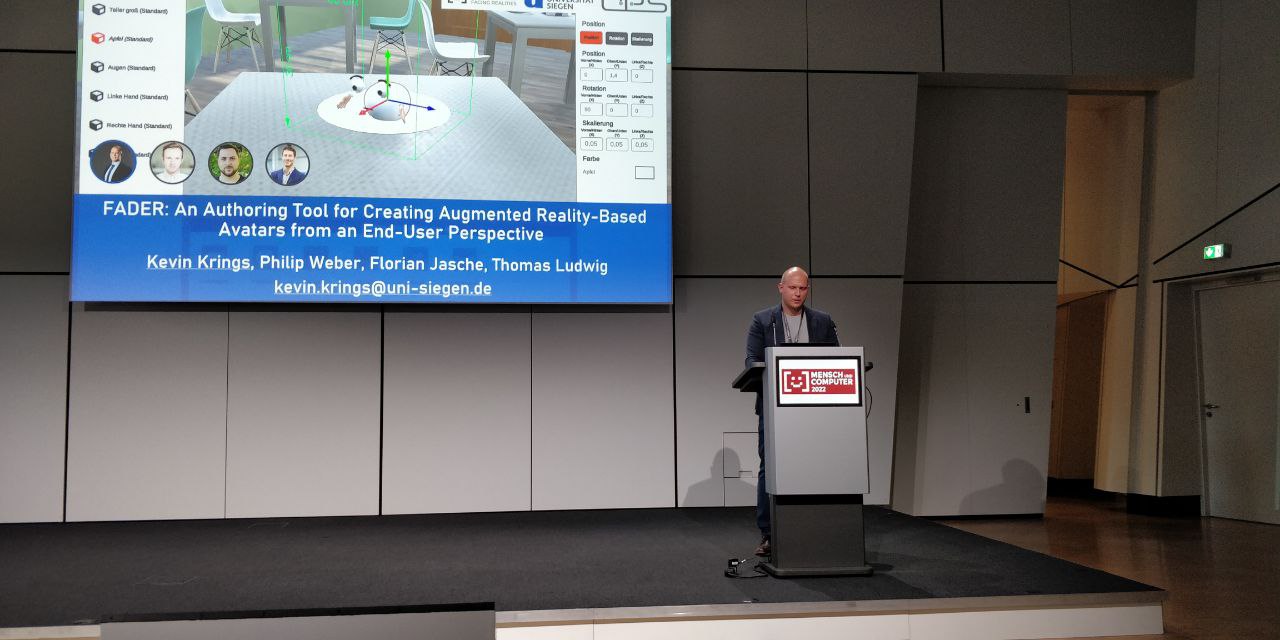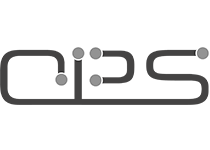CPS at the MuC 2022

From 4th to 7th September 2022, almost 600 participants from science and industry met at the Technical University of Darmstadt at the “Mensch und Computer” (MuC) conference under the motto “Facing Realities”. Fortunately, after the pandemic-related online-only event in 2021, this year’s conference was again able to welcome its participants “live, in color, physically, i.e., for real” in Darmstadt.
Kevin Krings from the Chair of Cyber-Physical Systems (CPS) at the University of Siegen supported the organization team as a student volunteer in the run-up to and during the conference. He was impressed by the many networking opportunities and the extremely inspiring atmosphere. Students can also benefit from this and join in as a helping hand at the next MuC and other conferences.
That said, Kevin Krings was not only there as a helper: he also presented his new paper there, titled „FADER: An Authoring Tool for Creating Augmented Reality-Based Avatars from an End-User Perspective“, which he devised together with Philip Weber, Florian Jasche and Thomas Ludwig.
The study aimed to empower non-programming end-users, in this specific case restaurateurs, in the development of augmented reality (AR) content. Although AR is becoming more prevalent in our society, most tools are focused on creating full 3D applications or require extensive knowledge of programming and 3D modeling. That is, specialized end-user tools are few and far between. The tool was developed as part of the „Rendezfood“ project. In this context, it aims to enable restaurateurs on a web platform to create custom AR avatars in the human-food interaction domain.
Research on end-user development (EUD) and content creation in the AR domain continues to be an interesting field with many open questions to be answered. The research basis for the presented paper was laid in the already completed project “Rendezfood”, which ended this year after three successful project years. The result of the comprehensive investigation was that playful design, e.g., a web platform in which one has the impression of sitting in a restaurant, promotes immersion, and that abstract placeholders and highly simplified control elements also enable non-developers to create AR content.
You can find more impressions of the conference here.



